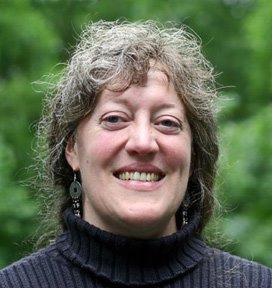Education is not the filling of a pail, but the lighting of a fire.
~ W. B. Yeats
I’m taking a break from researching Language Arts Core Curriculum Content Standards, and thinking about how to make education fun. In today’s schools, the odds are against teachers accomplishing that goal. Instead, they are spending untold hours trying to figure out how to help children learn in spite of looming NCLB high-stakes testing, how to continue to be creative in the face of schools losing funding.
Kindergarten has become a place of high stakes academics. Our poor five year olds can forget about learning how to cooperate, share, take turns, and all the other wonderful concepts we used to be able to teach them that Robert Fulgham wrote about in his book All I Really Need to Know I Learned in Kindergarten. Instead, they are busy memorizing the spelling of 500 sight words. Third graders are learning to cope with mean, median, and mode; concepts I think I learned first in high school.
In my literacy class, I am working on a fun way to introduce a novel to fifth graders in a shared reading class. Not so easy; fifth graders have learned to be rather blasé about fun. It’s not cool any more to have fun, so as a teacher, I’ll need to work extra hard to make it happened for them, to help them retain or regain their love of knowledge.
In my Effective Schools, Effective Teaching class, I am working on an integrated micro-teaching unit and lesson plans with a small team of classmates. This is Junior High level, and we’re choosing to produce a newsletter on “It’s Your Planet!” I’m working as a Language Arts teacher because we didn’t have anyone to take that role. We’re all being certified for different subjects; none for Language Arts. Since reading and writing are both loves of mine, I happily took on the role, and have been having fun working on a plan for this unit lesson.
Much to my surprise, after meeting with my advisor this week, I might qualify for a Language Arts middle school subject area specialization, as well as Social Studies. It all depends on if the state will accept two communications classes. It says on the website that it won’t accept Communications credits or Theater credits, but then later says classes in departments that aren’t English might qualify. So would a course in Folklore qualify? Would a course in Introduction to Speech count? Folklore sure seems to me to be a course in literature, doesn’t it? And why would speech not count? Don’t all students need to be proficient in oral speaking? Well, a bureaucrat will make a decision, and I have no control over that decision, so I’ll register for the Praxis exam, and take the test, and if the state DOE accepts the credits, they do. If they don’t, I guess if I’m offered a position as a middle school English teacher, I’ll have to take two courses lickety split in my first year of work in order to gain the full credentials!
Pondering how I will find my first teaching position reminds me it won’t happen unless I manage to pass all my courses this semester, so I’m headed back to looking at Language Arts Curriculum Standards, and devising lesson plans for interviewing, desktop publishing, and journalism, and global warming. I’m thinking hard about how to make lessons interesting and inspiring for students. I’m thinking hard about how to keep everyone in the class involved, including the at-risk students and the students with IEPs. I’m pondering how our children might be curious enough about global warming to get involved, even as young students, in creating change in our government.



1 comment:
Congratulations, sweetheart!
You would be an awesome Language Arts teacher ... or Social Studies, or a combination thereof ... or Maths, or H.S. Economics, or, or, or ...
Okay, you would just be an awesome teacher, at any grade level ...
And I KNOW you will find ways to make your lessons fun and engaging ... Those kids will be lucky to have you!!
Post a Comment